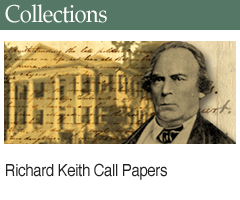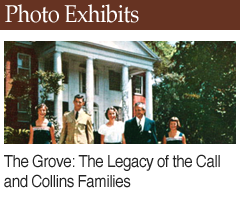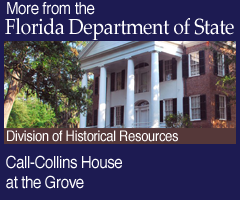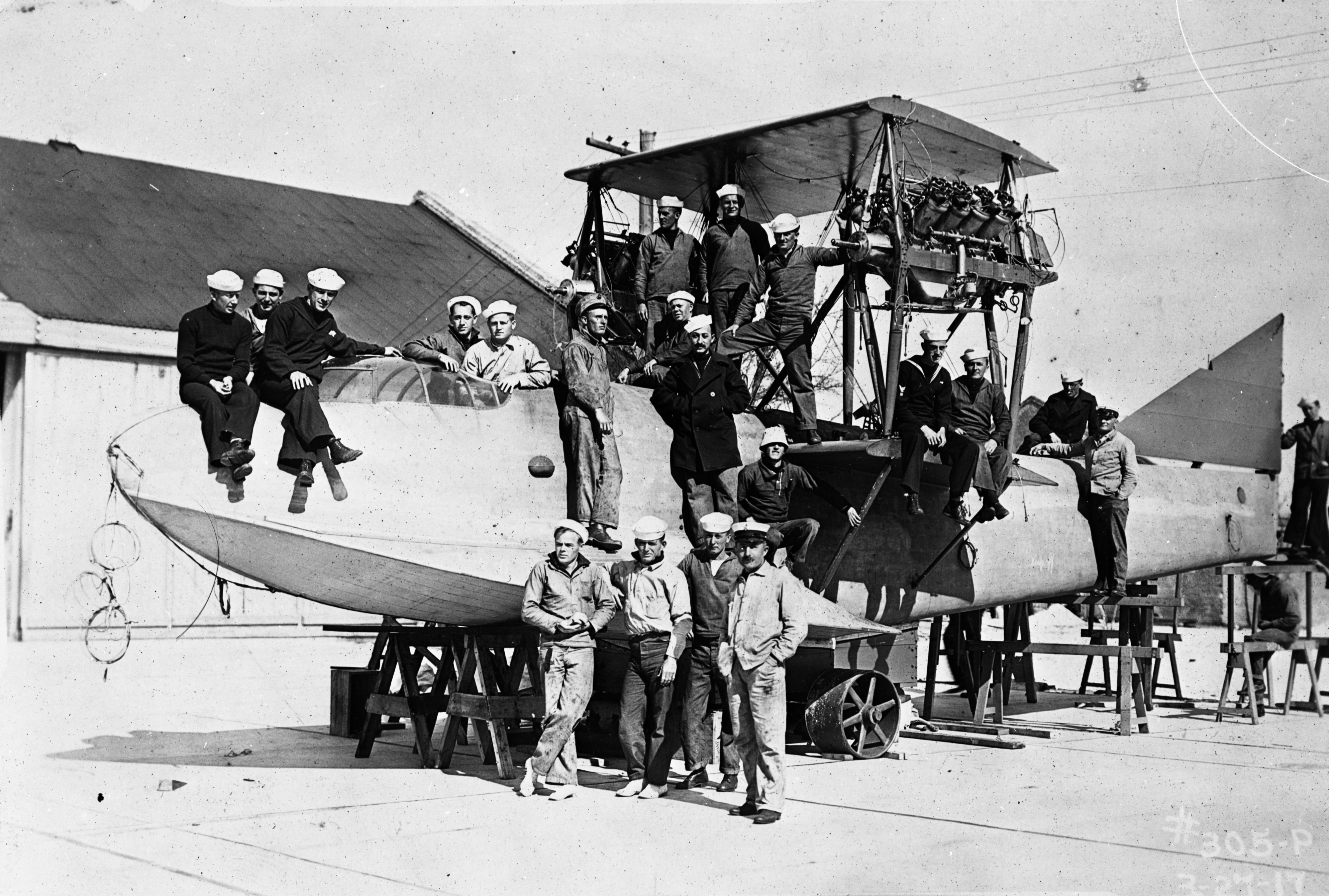Call and Brevard Family Papers
Series Description
Record Group Number:
900000
Series/Collection Number:
M92- 1
Quantity:
6 cubic feet
Arrangement:
Organized into two series: Call Family Papers and Brevard Family Papers; within each series, primary arrangement is chronological. Oversized and flat materials are filed separately at the end of the collection.
Collection Description:
This collection contains correspondence, writings, and other papers of Richard Keith Call and his family, 1788-1916, and Theodore Washington Brevard and Mary Call Brevard and their family, 1820-ca. 1920s. Included are personal and business correspondence; financial records; land records; commissions; speeches; manuscript poems, articles, books, and other writings; newspaper clippings; and scrapbooks documenting the personal and public lives of members of the Call and Brevard families. Together, the Call and Brevard Family Papers offer highly significant and unique documentation of Florida's territorial, early statehood, and Civil War history, the development of early Tallahassee, issues and attitudes concerning slavery and race, and the effects of the Civil War on the lives of planters of the Old South.
Particularly significant among the Call papers is correspondence between Richard Keith Call and Andrew Jackson, for whom Call had served as an aide de camp and with whom he maintained a lifelong friendship. Also notable are Call's writings regarding slavery and race, secession, the Union, and the Civil War. Call's civil, diplomatic, and military commissions are in the collection, including those appointing him territorial governor of Florida. The collection also documents Call's land speculation activities in early Florida and his involvement in attempts to settle the estate of Thomas Kirkman, father of his wife Mary Letitia Kirkman Call. Call's correspondents included Andrew Jackson and Prince Achille Murat, nephew of Napoleon Bonaparte and an early Tallahassee settler.
Also included in the Call papers is correspondence between R. K. Call and other members of the Call family, including his wife Mary and their daughter Ellen Call, known as the first white child born in Leon County. Much of this material documents Ellen Call Long's attempts to defend her father against his critics, and her own experiences as an author and member of various civic and cultural organizations, including Civil War and Confederate memorial associations and women's organizations. Most notable of these materials is a compelling Civil War diary of Ellen Call Long in which she discusses the progress and conclusion of the war, the assassination of President Lincoln, and the humiliation of the South. Ellen Call Long's correspondents included Princess Achille (Catherine) Murat, Octavia Walton Le Vert, Julia Ward Howe, John Stockton Littell, Henry Flagler, and Florida Governors Harrison Reed, George F. Drew, and William D. Bloxham.
The Brevard Family Papers document the lives of Mary Call Brevard, younger daughter of Richard Keith Call and Mary Kirkman Call, Mary's husband Theodore Washington Brevard, Jr., and their families in North Carolina and Florida. There is a significant amount of correspondence between family members during and after the Civil War, particularly among Mary Call Brevard, T.W. Brevard, their children Carrie (Caroline Mays), Call (Richard Call), and Jennie (Jane), and Mary Call Brevard's older sister Ellen Call Long. Included are many poignant letters from T. W. Brevard written from Confederate camps and the battlefield during the War, one describing the death of his younger brother Mays. The collection also contains Caroline Mays Brevard's original writings as an author and educator, including some portions of her histories of North Carolina and Florida as well as children's stories with Old South themes.
Language Note:
A few documents are written in Spanish or French.
Finding Aid:
Item list, extensively annotated.
Ownership and Custodial History:
The Call Family Papers and Brevard Family Papers were loaned to the University of North Carolina Southern Historical Collection in 1940 and maintained as two separate collections, #2293 (Call) and #2294 (Brevard). Selected documents from both collections were microfilmed (see Box 14). The owners removed the papers from the Southern Historical Collection in 1992 and donated them to the Florida State Archives with the request that they be maintained as a single collection.

 Listen: The World Program
Listen: The World Program


